Unlocking Multistakeholder Cooperation within the UN System: Global Partnerships for Open Internet
European Union
Session 256
Two-thirds of the world’s population uses the Internet, but 2.7 billion people remain offline. In most developing countries, mobile broadband (2G and 3G) is the main and only way to connect to the Internet. Secure and sustainable infrastructure is pending in many low-income countries, from spectrum management, conformity, and interoperability to trusted providers. To overcome these challenges, the design, development, and implementation of policy initiatives with a stronger focus on Internet governance, infrastructure, access, usage, or affordability need to rely on a set of principles agreed upon at the highest multilateral level of decision-making in the UN and shared across all stakeholder groups.
The UN bodies and institutions have been at the forefront of various initiatives and policy processes on ICTs and data, fostering political dialogues and multistakeholder engagements such as the Broadband Commission for Sustainable Development, the Partnership on Measuring ICT for Development, and the SDG Digital Accelerator Agenda. Translating these political endeavors into concrete action requires engaging and cooperating among various stakeholder groups across regions, countries, and sectors.
This roundtable discussion aims to facilitate a policy conversation and offer recommendations on integrating Open Internet principles, as outlined, among others in the Declaration for the Future of the Internet, into ongoing processes such as WSIS+20, the Global Digital Compact, and other UN-related multistakeholder initiatives. It also seeks to explore how to expand the scope, approach, and instruments dedicated to realizing these principles within the UN system through multistakeholder partnerships.
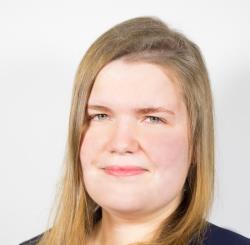
Raquel Jorge works as Project Lead at the Global Initiative on the Future of the Internet (GIFI). GIFI is the EU-funded project established to promote the EU’s technology diplomacy efforts through the Declaration for the Future of the Internet (DFI) and support the implementation of its principles in a multi-stakeholder and rights-based approach. She works on policy support, multistakeholder engagement, and outreach and communication. Jorge specializes in the international agenda of technology policy and governance.
She complements this activity with an affiliation to Elcano Royal Institute think tank, based in Brussels and Madrid. She has worked as an independent expert consultant for the European Commission, provided trainings to policy officers in multilateral organizations, and supported digital public policy projects at Harvard University’s Berkman Klein Center for Internet and Society. She also worked as a Technical Advisor in the planning of the then National Strategy on Technology and Global Order at Spain’s Ministry of Foreign Affairs and at Development Initiatives Ltd., a consultancy firm based in the United Kingdom.
As a former Fulbright Fellow granted by the U.S. Department of State, she holds a Master’s in Security Policy, specialised in Science and Technology Policy, at George Washington University (Washington, DC). She also has a Master’s in International Relations and African Studies from Universidad Autonoma de Madrid, and a Double Bachelor’s in Sociology and Political Science and Public Administration spent at the University of Valencia and Université Paris X.
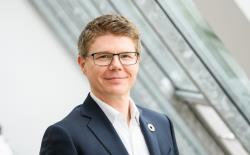
Robert Opp is currently the Chief Digital Officer of UNDP, the United Nations' global sustainable development organization working across 170 countries globally with more than 22,000 staff. UNDP adopted its second Digital Strategy in 2022, which sets out a vision to create a world in which digital is an empowering force for people and planet. Rob leads the agency’s digital transformation, an organization-wide effort, to harness the power of new technology to improve the lives of those furthest behind.
Prior to this role, Robert served as Director of the Innovation and Change Management Division within the United Nations World Food Programme (WFP) where he established an in-house ‘Zero Hunger’ innovation accelerator and created an award-winning crowdfunding smartphone app, ShareTheMeal.
Previously, Robert was a management consultant with The Boston Consulting Group (BCG) based in Singapore where he served a wide range of private sector companies throughout Asia and the Middle East. He has also served in various other capacities in WFP, including Manager of emergency food aid assistance programmes in Angola within a $260 million operation that reached over 1 million internally displaced persons affected by civil war. Robert began his career at Canada’s International Development Research Centre managing projects focused on peacebuilding in post-conflict countries.
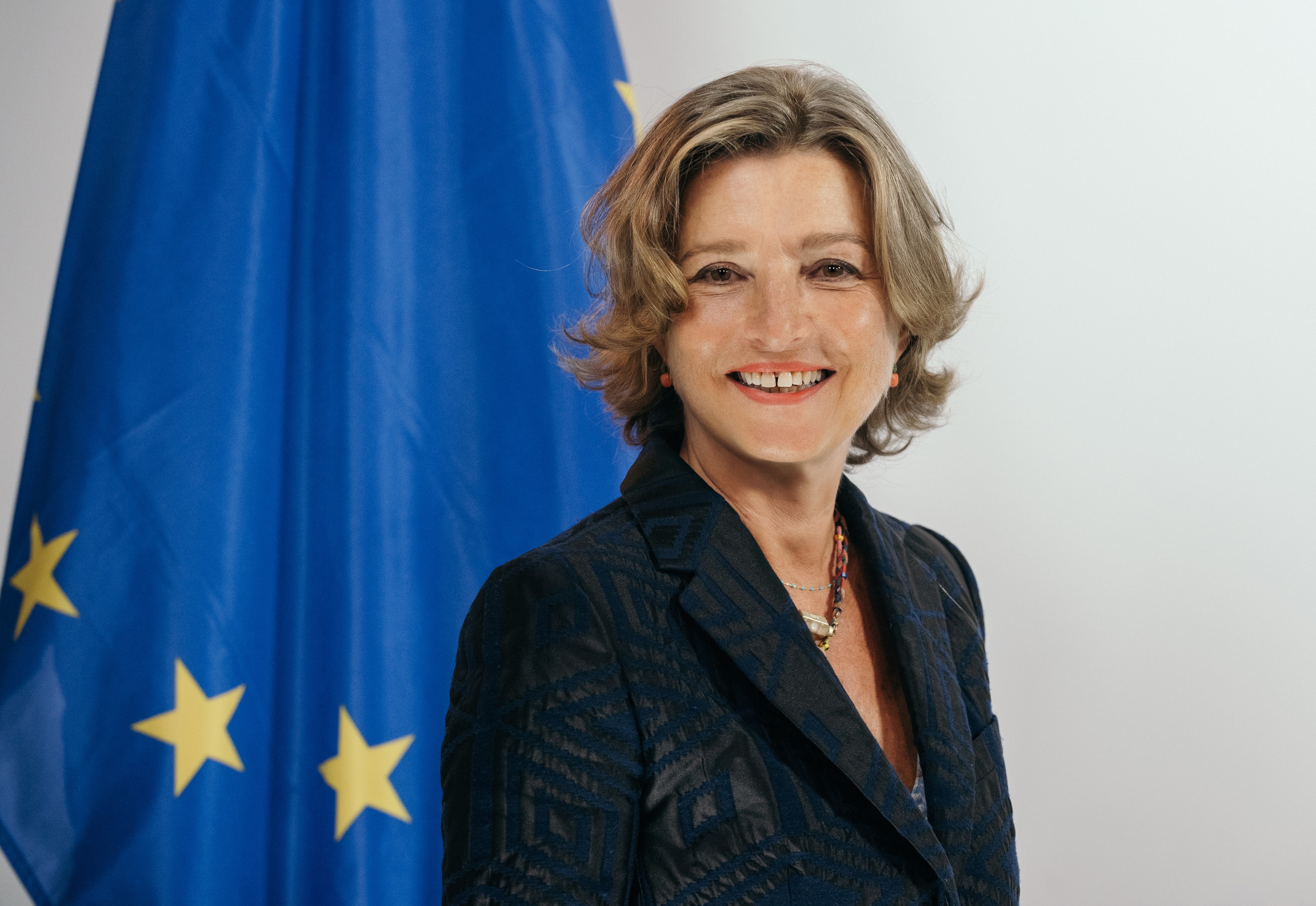
Fabrizia Benini is Head of the Next Generation Internet Unit within the Directorate General for Communications Networks, Content and Technology at the European Commission . Lawyer by training, she joined the European Commission in 1992 and has since worked in the Internal Market, Competition, Maritime Affairs and Digital departments, and in the cabinet office of the Vice-President for Industrial Relations. Her main responsibilities have included Citizenship of the Union, the Safe Harbor negotiations on data protection with the US, antitrust and mergers in the maritime transport sector and the pathway to decarbonization of heavy industries. Before joining the NGI Unit, she spearheaded efforts focused on the Recovery and Resilience Facility in the digital domain, economic analysis, and digital skills. Today she leads the unit dedicated to advancing cutting-edge technologies such as Blockchain, open-source digital commons and Internet Governance, positioning the EU as a leading voice in key international forums.

Carl Gahnberg is Director of Policy Development and Research at the Internet Society, where he focuses on issues related to Internet governance. In this role, he contributes to the organization’s global policy development, research, and its partnerships with international and regional organizations, engaging with global policy makers and non-governmental stakeholders on key Internet issues. Carl holds a PhD in International Relations from the Graduate Institute of International and Development Studies, Geneva, as well as Bachelor Degrees in Political Science and Economics from Lund University.
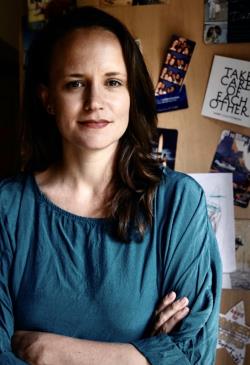
Chrissy Martin Meier is a recognized thought leader in digital development, with over a decade of experience managing complex initiatives which deliver positive results for people. Currently the Director of Policy, Chrissy is drawing on her extensive technical expertise gained through working with organizations including the World Bank (CGAP, ID4D and G2Px), GIZ, the Center for Financial Inclusion at Accion, USAID and many others.
She began her career in the private sector, launching the first mobile money product in Haiti with the telecommunications company Digicel and driving consumer insights for the start-up mobile payments company Zoona. A graduate of the University of Virginia and The Fletcher School at Tufts University, Chrissy now lives with her family in Switzerland.
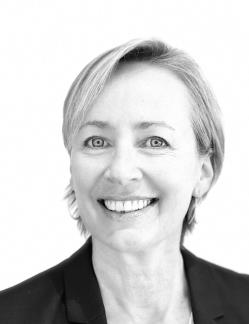
Lene Wendland is Chief of the Business and Human Rights Section in the Office of the UN High Commissioner for Human Rights (OHCHR). She was part of the team of former Special Representative of the UN Secretary-General on Business and Human Rights, Professor John Ruggie, and contributed to the development and drafting of the UN Guiding Principles on Business and Human Rights (UNGPs), the authoritative global standard on business and human rights. In her role as Chief of the BHRS, she oversees OHCHR’s work on implementation of the UNGPs at the national level and in global policy developments. She directs the UN Human Rights’ Accountability and Remedy Project, which aims to enhance accountability and access to remedy in cases of business involvement in human rights abuses. She also directs the UN Human Rights B-Tech Project, applying the UN Guiding Principles on Business and Human Rights to key human rights challenges related to digital technologies. Lene was a member of the FIFA Independent Human Rights Advisory Board (2017 – 2020) and a member of the World Economic Forum's Global Agenda Council on Human Rights (2020-2022). She is currently a member of the International Olympic Committee’s Advisory Committee of Human Rights, the Advisory Council of the Geneva Centre for Business and Human Rights, and the Copenhagen Tech Policy Committee. She represents UN Human Rights in the Centre for Sport and Human Rights, and as a technical advisor to the Board of the International Cocoa Initiative.
Lene holds a Master’s degree in law from the University of Copenhagen.
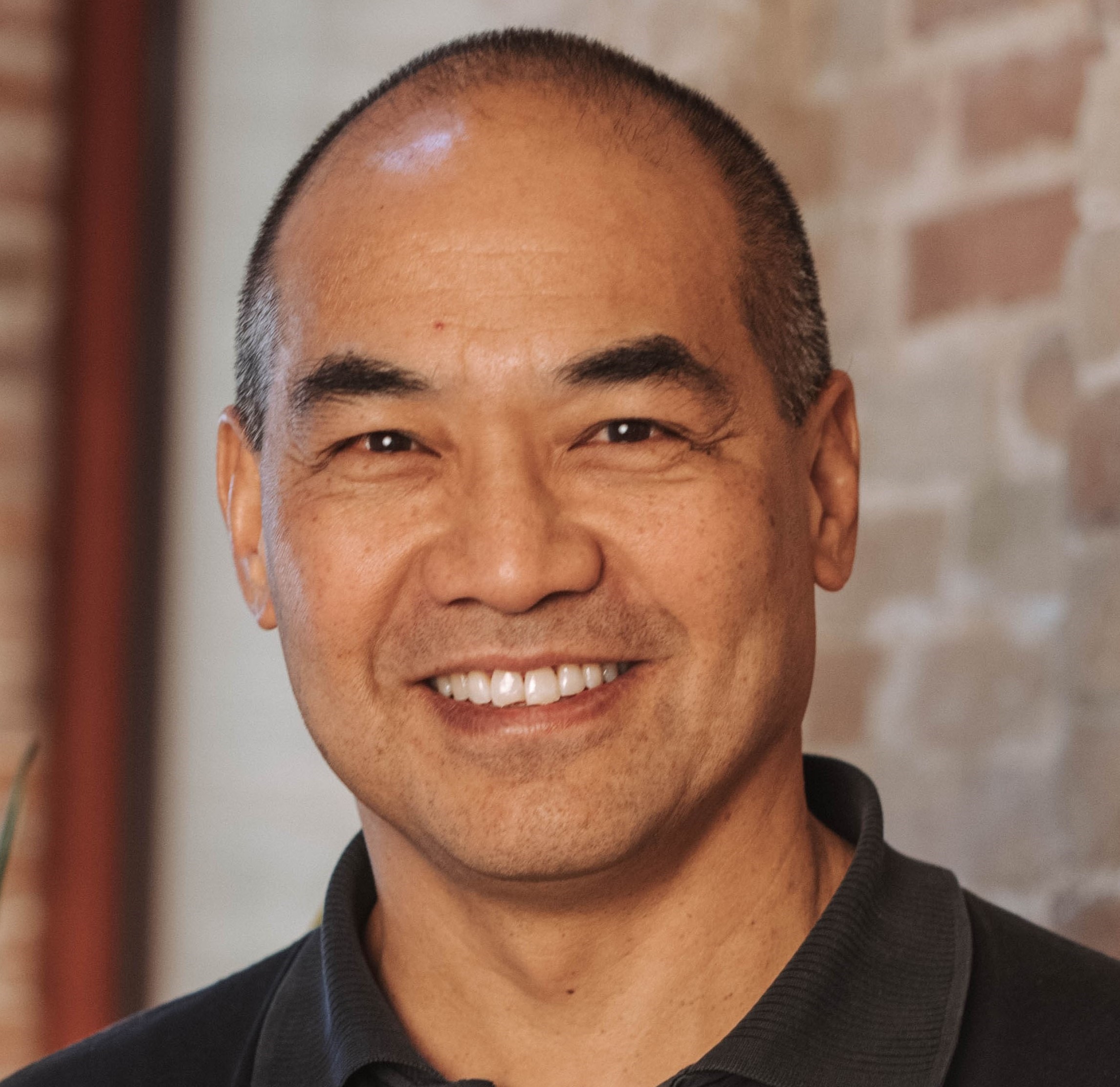
Alex Wong has over 30 years professional experience in a series of leadership roles that has consistently focused on building partnerships to address the world's biggest development challenges. Alex currently serves in the Executive Office of the International Telecommunication Union (ITU), the United Nations specialized agency for information and communication technologies, where he is responsible for developing and managing key engagements between the ITU and its partners, and overseeing ITU wide initiatives such as Giga and Partner2Connect. From 2019-2022, Alex served as Senior Strategy Advisor and Chief, Special Initiatives, in the Office of the Director of the Telecommunications Development Bureau (BDT).
Prior to joining the ITU, Alex worked in both the private and not-for-profit sectors. From 2018-2019, he served as President of CG/LA Infrastructure, a US based company that promotes and develops infrastructure projects around the world. From 2000 to 2018, Alex was a member of the Executive Committee at the World Economic Forum, an international organization for public private cooperation with a mission to improve the state of the world, where he held several leadership roles including the development and rollout of the Forum’s Global System Initiatives; heading the ICT, Media & Entertainment, Basics, and Infrastructure industry teams and related projects; and heading the Center for Global Industries Geneva. From 1988-2000, Alex worked in a variety of professional roles at Accenture as a Strategy Consultant, General Motors as a Quality Control Engineer, and the US National Parks Service.
He is a licensed Professional Engineer with a degree in Mechanical Engineering from the University of Toronto and a Masters in Public Administration from Harvard University.
-
 C1. The role of governments and all stakeholders in the promotion of ICTs for development
C1. The role of governments and all stakeholders in the promotion of ICTs for development
-
 C4. Capacity building
C4. Capacity building
-
 C5. Building confidence and security in use of ICTs
C5. Building confidence and security in use of ICTs
-
 C11. International and regional cooperation
C11. International and regional cooperation
-
 Goal 9: Build resilient infrastructure, promote sustainable industrialization and foster innovation
Goal 9: Build resilient infrastructure, promote sustainable industrialization and foster innovation
-
 Goal 16: Promote just, peaceful and inclusive societies
Goal 16: Promote just, peaceful and inclusive societies
-
 Goal 17: Revitalize the global partnership for sustainable development
Goal 17: Revitalize the global partnership for sustainable development
Global Initiative on the Future of the Internet project, European University Institute: https://www.eui.eu/research-hub?id=gifi-global-initiative-on-the-future-of-the-internet-1
Declaration for the Future of the Internet: https://ec.europa.eu/commission/presscorner/detail/en/ip_22_2695
NETmundial+10 Multistakeholder Statement: https://netmundial.br/pdf/NETmundial10-MultistakeholderStatement-2024.pdf